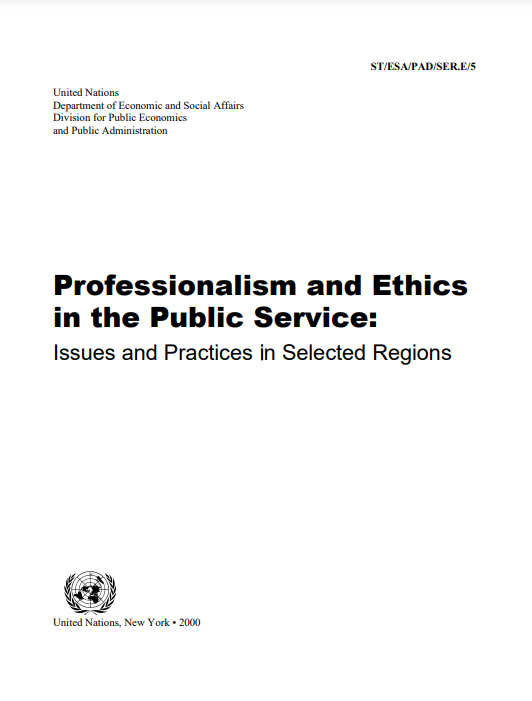
Scandals involving public officials have captured world attention these days. Precipitated by shady privatization deals, the diversion of aid, widespread public sector patronage, crony capitalism, and campaign financing abuses, people are debating outright corruption and unprofessional behaviour in government. Are public officials held to higher standards of performance and conduct than others? If so, why? With the advent of the modern state, government officials have been and are seen as stewards of public resources and guardians of a special trust that citizens have placed in them. In return for this confidence, they are expected to put public interest above selfinterest. The public service, made up of those employees of the state who are covered by national and subnational civil service laws, plays an indispensable role in the sustainable development and good governance of a nation. It is an integral part of democracy because it serves as the neutral administrative structure which carries out the decisions of elected representatives of the people. It not only serves as the backbone of the state in implementing a strategy for economic growth of a nation but also runs the programmes that function as the safety net for the most vulnerable segments of a society. Given these crucial roles, a country expects its public service to demonstrate high standards of professionalism and ethics.
 مرحباً بكم في الأمم المتحدة
مرحباً بكم في الأمم المتحدة 